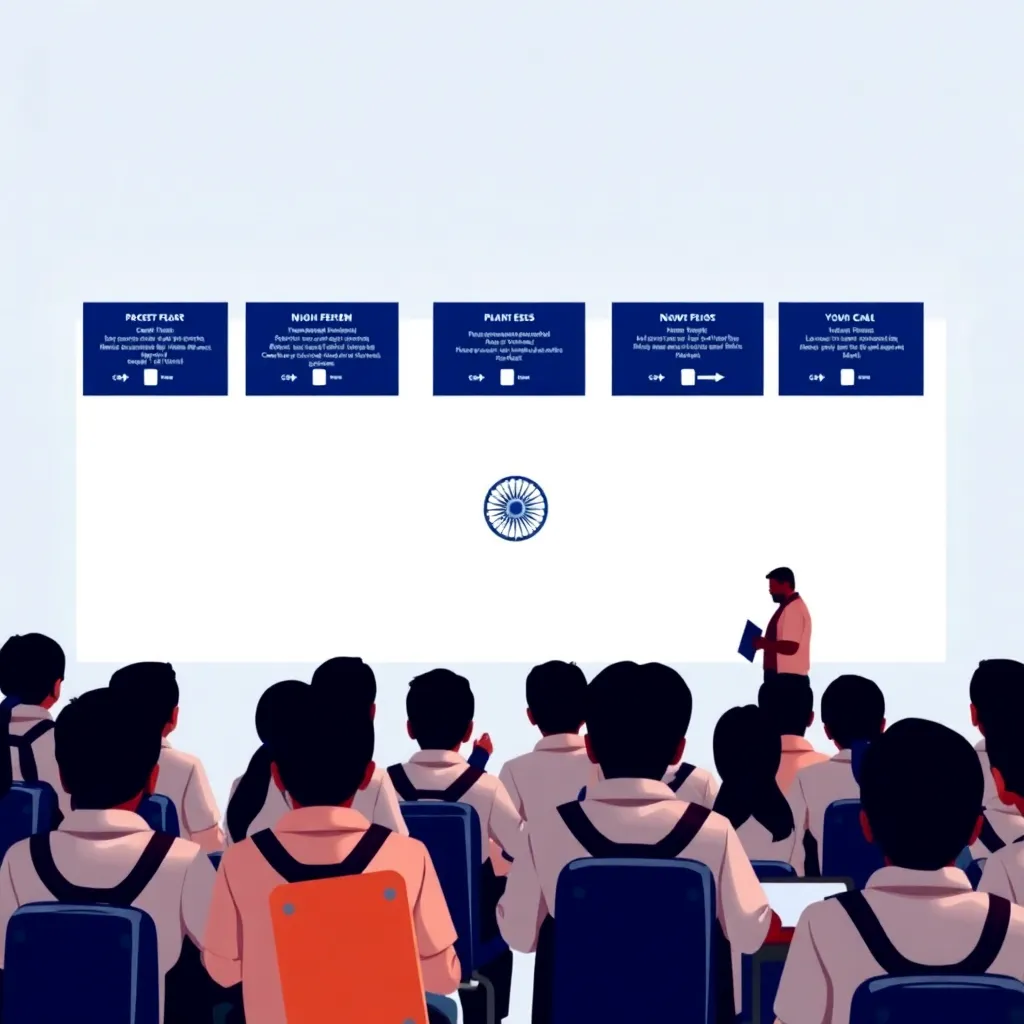
14-Nov-2024 , Updated on 11/14/2024 10:16:38 PM
Failure of the Government on the Education System of India
India, a nation with a rich history and a bright future, is facing a critical challenge: the deficiency of its education system.
Even today, this country has one of the biggest economies of all nations in the world, and yet the education system that has been deployed is full of many challenges that could hamper the development of our youths. But now we have to ask what is wrong and why the government is not performing to the optimum level it should.
The Broken Promises
The Indian government in particular has made so many commitments and promises of fixing the education system over the years. Whether it is the Right to Education Act or different schemes to increase investment in infrastructure or teacher training, the intentions have been nobler more often than not. But as we all know, the situation on the ground is always different from that which is recorded on paper. Schools remain poorly funded, classes are still packed, and the academic standards remain appallingly low.
Quality Over Quantity
India has schools and colleges in plenty, but the issue here is not about abundance but quality. Some schools, especially those run in remote areas, do not even have basic amenities such as clean water to drink, board facilities, and reasonable teachers, among others. Vygotten, in the Annual Status of Education Report (ASER), notes that a large proportion of learners in primary education cannot read simple texts or do simple arithmetic. This is not a mere figure of speech; it is evidence that a system is letting down its students.
The Teacher Crisis
A teacher is the soul of any education system, and in India, they are underrated and employed in most unsatisfactory manners. The teachers are many of them paid very little wage, and many are not trained to teach. Due to government neglect, there is inadequate investment in teacher training programs for a workforce that is prepared to tackle complicated problems within education systems. This affects students directly; students need experts, curious, motivated teachers.
The Urban-Rural Divide
Another prominent problem associated with education in India is definitely the division of students based on the area they live in—urban or rural. Although urban schools complain of inadequate facilities and teaching aids, rural schools are usually on their own. Such a condition makes inequality cyclical, and it will be very difficult to change the cycle. The government must ensure that quality education is provided to all its citizens, irrespective of their region.
Exam Orientation over Education
The present-day education system highly devalues educational content by focusing more on memorisation and exam performance. Students are taken through cramming methods as opposed to effective learning styles. Is it not strange to let students grow and deprive them of any chance of using critical thinking skills? This is because the government should move from its obsession with examination holism to promoting innovation in solving problems.
Why Curriculum Needs to be Changed
All in all, the curriculum that is taught in many schools in India is highly centralised and not synchronised with the requirements of the modern workplace. Due to fast growth in technology and the ever-changing need in the market, students should be skilled. The government must endeavour to review the curriculum to integrate ones that would hone and prepare students for the future, such as practical skills, vocational training, and computer literacy.
Conclusion: Call to Action
The problems concerning the education system of India have not been properly addressed by the Indian government; hence, it is an emergent issue we cannot afford to overlook. This therefore calls for the citizenry to get up and start holding their leaders to account. Education lies at the heart of any country’s development, and without an adequate supply of students, India is set to fail.
We need to fight for funding, quality teachers, and a program that teaches students in order to enable them to offset the challenges of their future world. The time for change is now. It is now time for change and for a Vikaas that is inclusive and just so that every Indian child can have a realistic shot at an education system predominantly for nation-building.

Student
hey there! i am a student currently pursuing my bachelors with a keen interest in writing., I am fueled by a deep love for storytelling and a flair for creating captivating narratives. Armed with a passion for language and a keen eye for detail, I strive to craft compelling copy that leaves a lasting impact.
Join Our Newsletter
Subscribe to our newsletter to receive emails about new views posts, releases and updates.
Copyright 2010 - 2026 MindStick Software Pvt. Ltd. All Rights Reserved Privacy Policy | Terms & Conditions | Cookie Policy